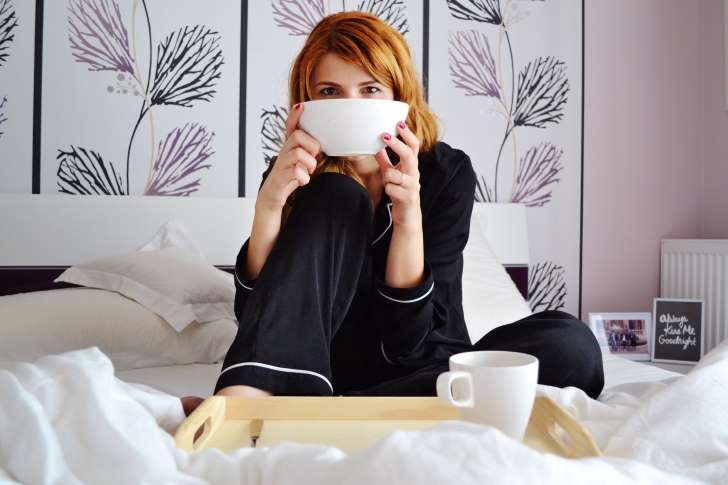It seems to happen every time we travel. We have the best time exploring, trying new foods, and enjoying fancy cocktails - then we come home and feel disgusting. Our vacation week is followed by a week of sick time, and that benefits no one.
好像每次出去玩都会生病。我们可以尽情探索、品尝新的食物、享受美味的鸡尾酒--然后我们回到家,感到一阵恶心。假期后的一周,我们都生病了,这对任何人来说都不是好事。
So, why do we always get sick after travelling? Stress! Travelling can be very stressful for a lot of reasons. "You don't like being on an aeroplane, you need to figure out what you are going to pack for carry-on vs. check-in, you need to sleep in a strange bed in a strange hotel in a strange city, and you might have to change time zones and lose sleep either on the way there or the way back," says Dr. Tania Dempsey, MD, of Armonk Integrative Medicine.
所以,为什么每次旅行后我们都会生病呢?压力啊!很多理由会导致旅游时压力重重。"你不喜欢坐飞机;你需要想清楚哪些打包的东西是带上飞机的,哪些是托运的;你不得不睡在陌生城市的陌生酒店的陌生床上,你可能需要倒时差,去那儿或回来的路上你可能会睡不好," Armonk Integrative Medicine的塔尼亚·登普西医生说道。
These are the main causes for post-travel illness.
这些是出游后生病的主要原因。
Stress is a major trigger for getting sick. "Stress lowers the immune system, making it more difficult to fight off colds and other infections that you can be exposed to while travelling," says Dr. Dempsey. Crowded airports and aeroplanes with people coughing and sneezing all around you are a sure-fire way to pick up a bug.
压力是生病的主要诱因。"压力会降低免疫系统,使其更难抵御感冒和其它旅行过程中接触到的感染,"登普西医生说道。拥挤的机场和飞机上咳嗽、打喷嚏的人群肯定会让你生病。

We are exposed to many germs all the time, but an aeroplane definitely compresses them all into one shared space. "Respiratory droplets are the most common way illness is spread, and if you are within six feet, you're more likely to breathe it in," says UC Health primary care physician Dr. Rita Sharma.
我们一直接触很多细菌,但飞机绝对会将这些细菌压缩到一个共享的空间内。"呼吸道分泌物是疾病传播的最常见方式,如果你的身高在6英尺以内,你很有可能将这些分泌物呼吸进去," UC Health的初级护理医师丽塔·夏尔马医生说道。
Low humidity. Aeroplane air is probably well filtered and also refreshed often, but at the cost of low humidity. "This can cause dryness in the nasal/air passages, which reduces your ability to block the harmful airborne particles," says Dr. Sharma.
湿度低。飞机上的空气可能被过滤了、也经常换气,但这是以湿度低为代价的。"这会导致鼻腔干燥,从而降低了你阻止空气中有害颗粒的能力。"
Mode of transportation. "If you are flying or using some other type of public transportation (trains, buses, etc.), you are more likely to be coming into contact with lots of other people that may be sick and you probably don't have the ability to move away from them, so if they sneeze or cough, you are in the line of fire," says UC Health infectious disease expert Dr. Michelle Barron.
交通方式。"如果你是坐飞机或者乘坐其它公共交通方式(火车、汽车等等),你更有可能与很多可能生病的人接触,而你完全无法远离他们,所以如果他们打喷嚏或咳嗽,你就自身难保了," UC Health的传染病专家米歇尔·巴伦医生说道。
译文属可可原创,仅供学习交流使用,未经许可请勿转载













